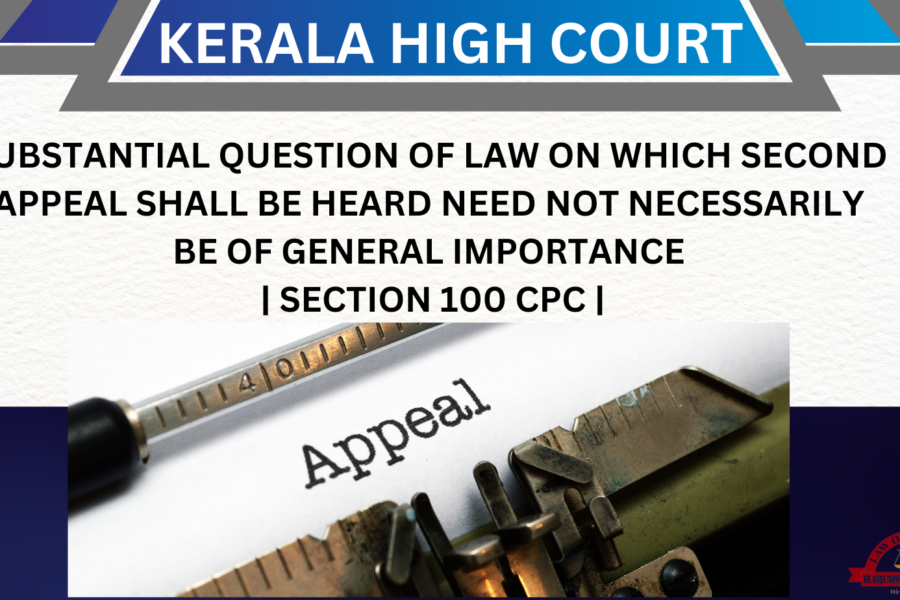The case Gokuldas v. Gopalakrishnan & Ors. (2023/KER/54349) is neutrally cited.
The Kerala High Court has observed that the substantial legal question on which a second appeal is to be addressed need not always be a substantial legal matter of public concern. A standard second appeal against the rulings of the Additional Munsiff, Thrissur, and Additional Sub-Judge was being considered by the Court. The appeal was submitted in compliance with Order XLII Rule 1 in conjunction with Section 100 of the Code of Civil Procedure (CPC).
It is evident that the legislature has decided not to limit the definition of “substantial question of law” by adding the phrase “substantial” to the end of the phrase. “of general importance,” as has been done in many other provisions, such as S.109 of the Code or Art.133(1)(a) of the Constitution. The substantial question of law on which a second appeal shall be heard need not necessarily be a substantial question of law of general importance.”
Brief Facts: The appellant was the first defendant in a lawsuit that the plaintiff brought as early as 2000 to partition the items on the plaint schedule. In response to the contest, Munsiff issued a preliminary decree, which was later followed by a final decree that took the commission report into account. After Munsiff rendered a final ruling and decree, the respondent was granted one plot. The first defendant and first respondent made no arguments challenging the allocation of shares in any way in the trial court’s final ruling.
The respondent objected to the share allocation when the appeal was reviewed by the Appellate Court, but the Court determined that no substantial objections had been made regarding the plot allocation or the property valuation that had been discussed in the trial court during the witnesses’ testimony, including the Commissioner and the Surveyor in this case.
The appeal was then denied by the Appellate Court. “In the instant case, it appears that the trial court passed a final decree and judgement after effecting separation of shares by metes and bounds, and the said final decree and judgement were confirmed by the Appellate Court,” the High Court stated after reviewing the comments made by the counsel.
The Court further decided that a second appeal involving no major question of law cannot be admitted, only for the purpose of submitting the parties to mediation. The Court noted that no substantial question of law arises for discussion in order to admit the second appeal. As a result, the High Court declined to get involved in the case and dismissed the appeal.
Adv. Khanak Sharma


I love the convenient location of this pharmacy.
where can i get cheap lisinopril without dr prescription
This pharmacy has a wonderful community feel.
This international pharmacy offers top-tier service globally.
where can i get generic cytotec prices
Appreciate their commitment to maintaining global healthcare standards.
earch our drug database.
can you buy generic clomid price
They bridge global healthcare gaps seamlessly.
Delivering worldwide standards with every prescription.
can you get generic cytotec tablets
Impressed with their wide range of international medications.